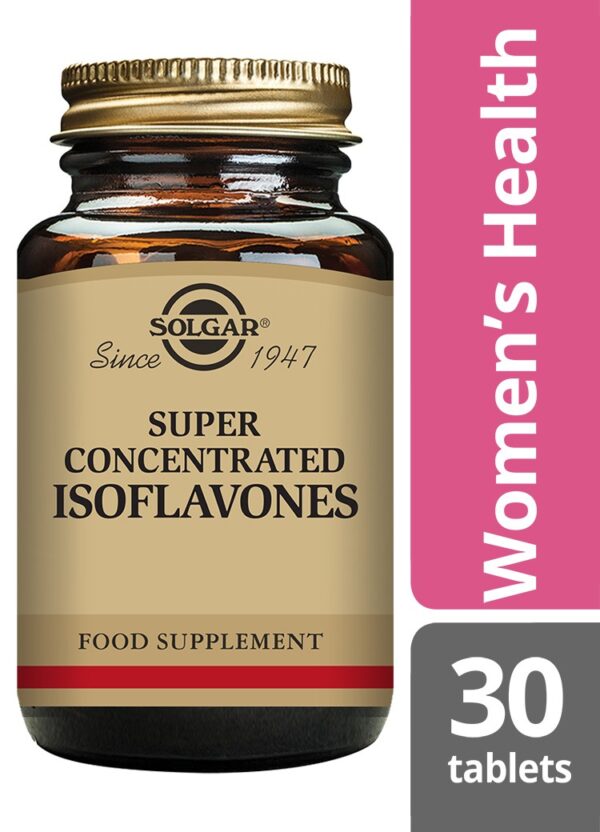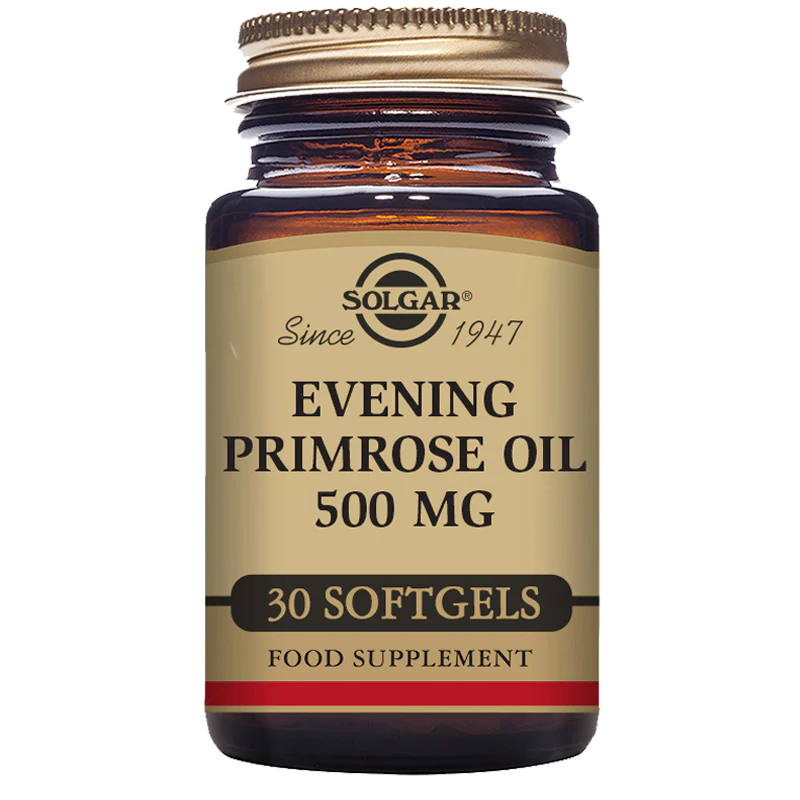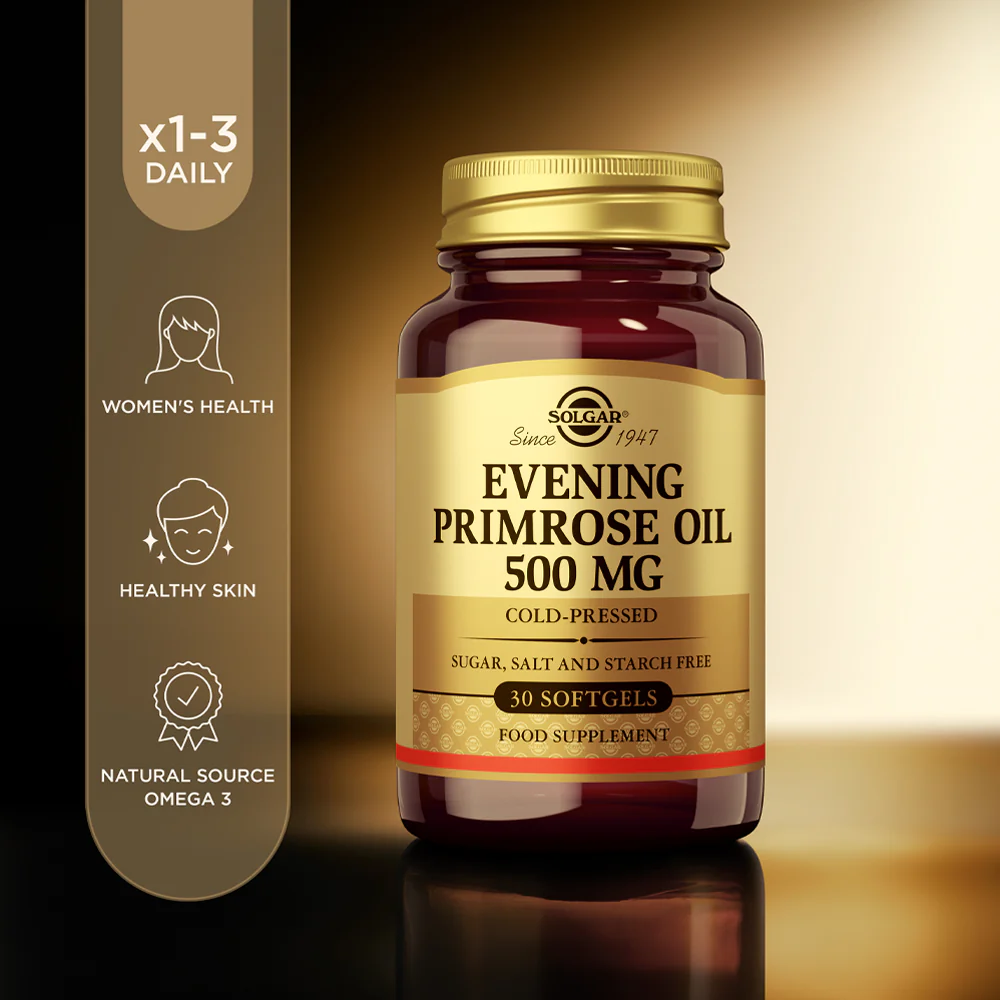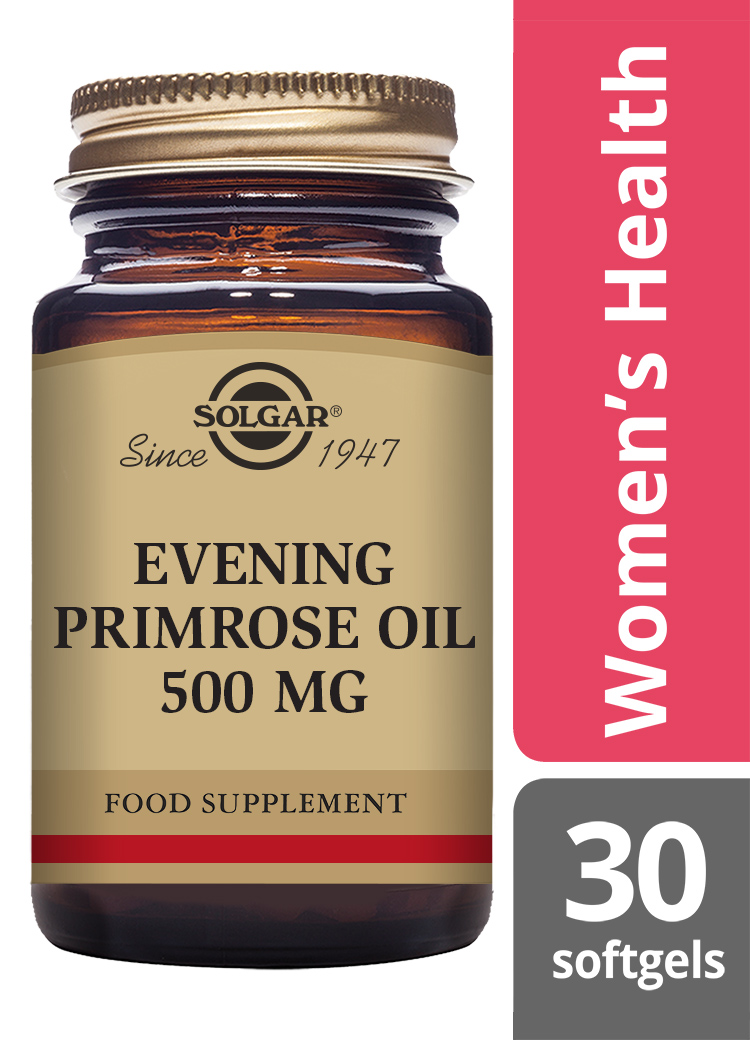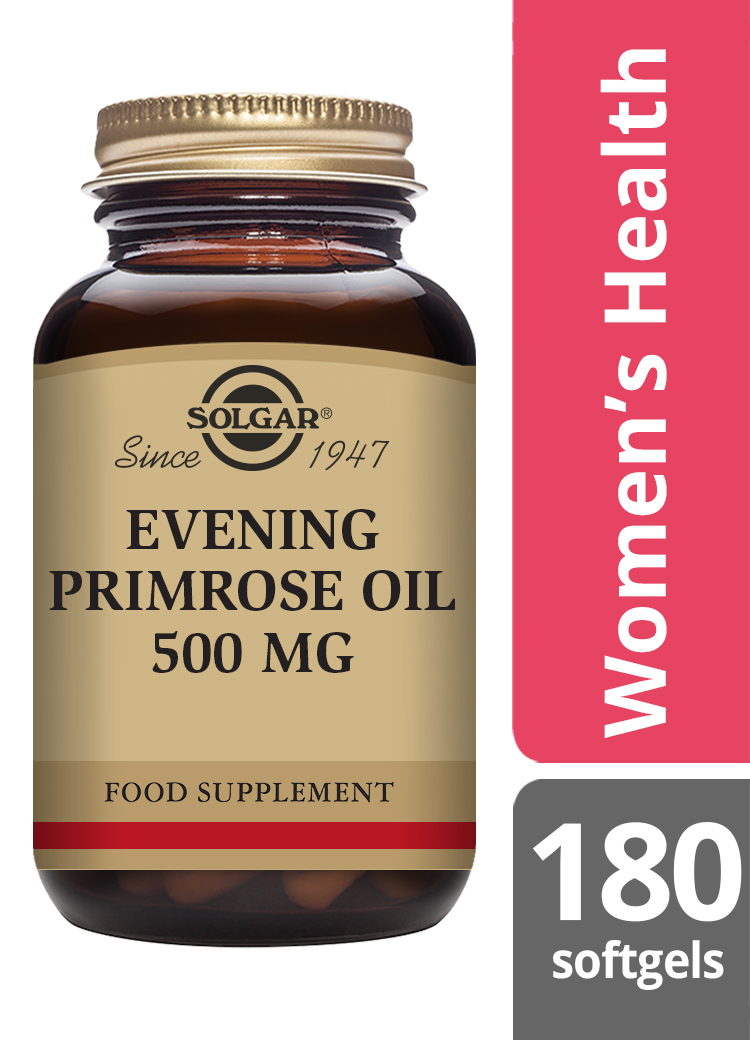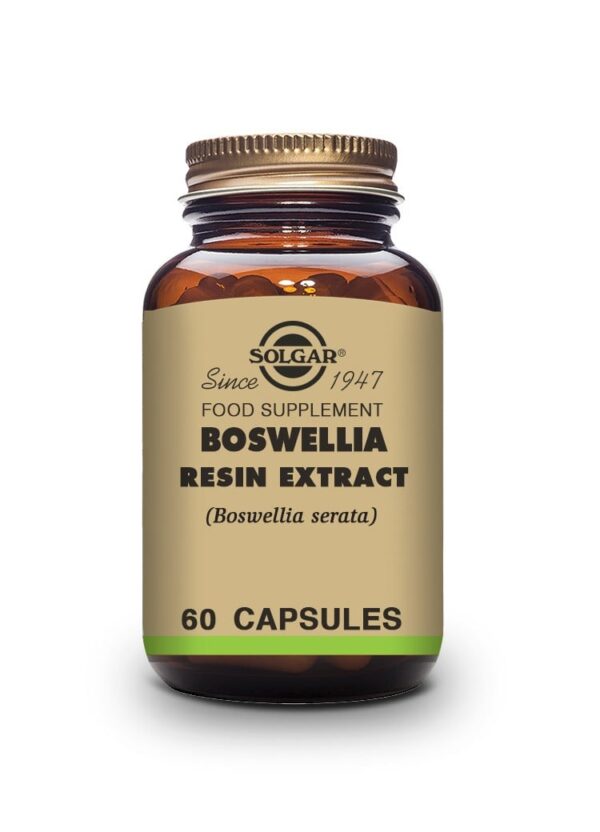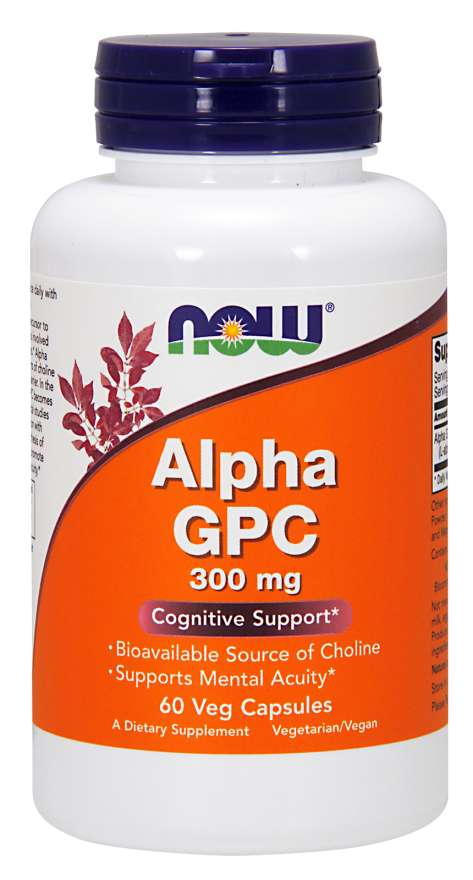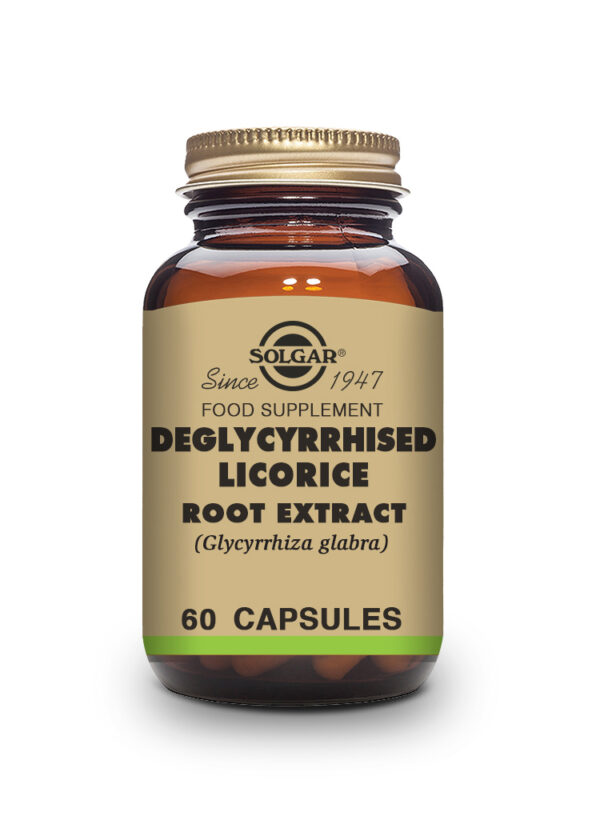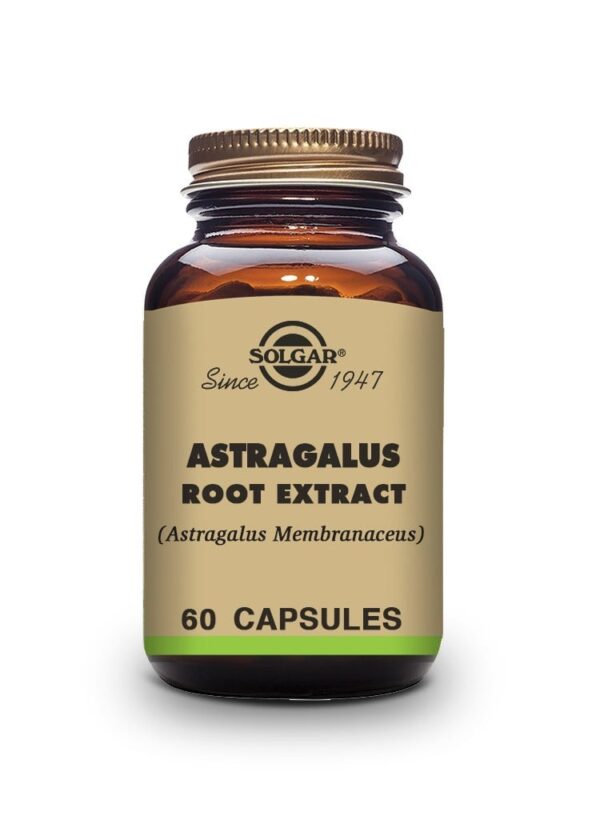Description
Evening Primrose Oil
Solgar Evening Primrose Oil (EPO) is a popular supplement derived from the seeds of the evening primrose plant (Oenothera biennis). It’s rich in gamma-linolenic acid (GLA), an omega-6 fatty acid that the body converts to prostaglandins, hormone-like substances thought to play a role in reducing inflammation. Here’s a breakdown of its uses and perceived health benefits:
Uses & Potential Health Benefits:
-
Skin Health:
-
Eczema (Atopic Dermatitis): EPO is often used to help reduce the inflammation, itching, and dryness associated with eczema. Some studies show improvement in symptoms, while others are inconclusive. It’s not a guaranteed cure, but some people find it beneficial.
-
Acne: The GLA in EPO may help reduce inflammation that contributes to acne. Some believe it can help improve skin texture and reduce the appearance of acne lesions. Research is limited and results are mixed.
-
General Skin Hydration: EPO might improve skin hydration and elasticity.
-
-
Hormonal Balance & Women’s Health:
-
Premenstrual Syndrome (PMS): EPO is a common remedy for PMS symptoms like breast tenderness, bloating, irritability, and mood swings. The GLA may help regulate hormones and reduce inflammation contributing to these symptoms. Evidence is mixed; some women find it helpful, while studies don’t always show significant effects.
-
Menopause Symptoms: Some women use EPO to alleviate hot flashes, night sweats, and mood changes associated with menopause. The research is limited, and effects vary among individuals. It is often considered a complementary therapy rather than a primary treatment.
-
Breast Pain (Cyclical Mastalgia): EPO is sometimes used to reduce breast pain associated with menstrual cycles.
-
-
Inflammation & Pain Relief:
-
Rheumatoid Arthritis: The anti-inflammatory properties of GLA may potentially help reduce pain and inflammation associated with rheumatoid arthritis. However, it’s not considered a primary treatment and results are varied.
-
Diabetic Neuropathy: Some research suggests EPO may help reduce nerve pain associated with diabetes.
-
-
Other Potential Uses (Less Research/Evidence):
-
High Cholesterol: Some studies explore if EPO could lower cholesterol levels, but the evidence is not strong.
-
Bone Health: Some research has looked into whether EPO may improve bone density and reduce bone loss, particularly in postmenopausal women. More research is needed.
-
Dry Eyes: EPO is sometimes used to alleviate dry eye symptoms, but the evidence for its effectiveness is limited.
-
ADHD: Some people explore using EPO to help manage ADHD symptoms, but it’s not a standard treatment and more research is needed.
-
Important Considerations:
-
Dosage: Dosage varies depending on the condition being treated and the concentration of GLA in the product. Always follow the recommended dosage on the product label or as advised by your healthcare provider.
-
Side Effects: EPO is generally considered safe for most people when taken at recommended doses. Common side effects can include:
-
Nausea
-
Stomach upset/digestive issues
-
Headache
-
Soft stools
-
-
Drug Interactions: EPO can interact with certain medications, including:
-
Anticoagulants (blood thinners): EPO may increase the risk of bleeding when taken with blood thinners like warfarin (Coumadin), aspirin, or ibuprofen.
-
Antipsychotics: There’s a theoretical risk of increased seizure activity when taken with certain antipsychotic medications.
-
Other Herbal Supplements: Be cautious when combining EPO with other herbal supplements that have blood-thinning or anti-inflammatory effects.
-
-
Contraindications:
-
Pregnancy and Breastfeeding: While some people use EPO during pregnancy for certain conditions, it’s best to consult with your doctor before using it, especially in the later stages of pregnancy. The safety of EPO during breastfeeding is not fully established.
-
Seizure Disorders: EPO may increase the risk of seizures in people with seizure disorders.
-
Surgery: It’s generally recommended to stop taking EPO at least two weeks before any scheduled surgery due to its potential blood-thinning effects.
-
-
Quality: Choose a reputable brand of EPO to ensure the quality and purity of the product. Look for products that have been third-party tested for quality.
-
Not a Replacement for Medical Treatment: EPO should not be used as a substitute for conventional medical treatment. It’s important to consult with your doctor about any health concerns you have and to discuss whether EPO is appropriate for you.
Important Disclaimer: This information is for general knowledge and informational purposes only, and does not constitute medical advice. It is essential to consult with a qualified healthcare professional for any health concerns or before making any decisions related to your health or treatment. Self-treating can be dangerous. The effectiveness of EPO can vary from person to person, and more research is often needed to confirm its benefits for many conditions.

